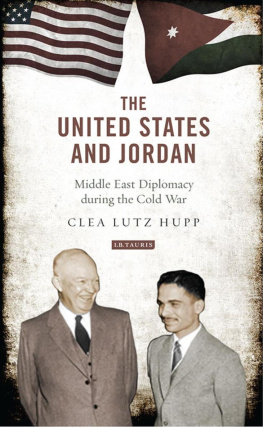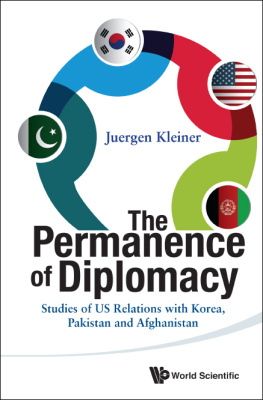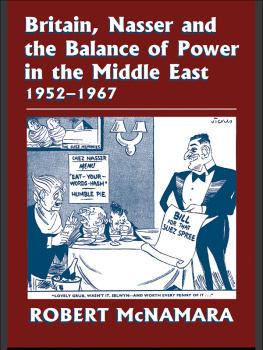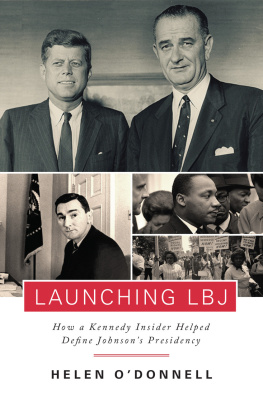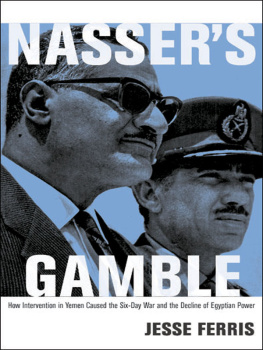Thank you to everyone who has opened up doors for mewhether a crack or wide open. First and foremost, Efraim Karsh, who took me on as one of his final PhD students at Kings College London. His advice and support over the years, especially during difficult times, was invaluable. He is a mensch. And without his faith in me, so many years ago, I would not be in a position today to be able to write about history and international relations. I cannot thank him enough.
I am grateful to the Made by History section at the Washington Post especially Nicole Hemmer, Kathryn Brownell, and Brian Rosenwald. They are phenomenal editors (I live in a state of anxiety when waiting for their track-changed Word documents), and their helpful feedback on my 2018 article about the value of personal diplomacy with difficult leaders very much shaped my completion of this book. Material from that article, Has Trump Figured Out a Winning Strategy on North Korea? is reproduced in the introduction and conclusion chapters with their kind permission.
I also want to thank Alan Johnson of Fathom for publishing my article, How Nassers Vendetta against America Led the Six-Day War, on the fiftieth anniversary of the 1967 Arab-Israeli War. Material from that article is reproduced in Part 3 with his kind permission. The Association for the Study of the Middle East and Africa (ASMEA) was also kind enough to invite me to share material from the unfinished manuscript for a panel in 2017, where I received helpful feedback and, most importantly, words of encouragement.
I owe a debt of gratitude to Niall Ferguson for the most important words of encouragement I received about the manuscript: to stop fine-tuning it and send it off to the publisher. It is because of his advice that my manuscript was turned into a book.
I also want to thank early reviewers of the manuscript, whether in its entirety or in excerpted papers, for their feedback and encouragementMichael Sharnoff, Simon Waldman, David Tal, Neill Lochery, Gideon Remez, Isabella Ginor, Doug Feith, Efraim Karsh, and William Quandtas well as the anonymous reviewers provided by Bloomsbury. All of them helped to shape this book, though I alone am responsible for any of its errors.
Special thanks to Rory Gormley and his team at the I.B. Tauris imprint of Bloomsburyespecially Yasmin Garcha. They opened another door for me by greenlighting this book, and their shepherding of it during a pandemic is nothing short of impressive.
Finally, I want to thank my family. My parents, Richard and Marilyn Glickman, taught me history at a young age. Some of my earliest memories are my mother reading me history in the car while listening to the daily 8 oclock morning march on the radio. My father, though he doesnt realize it, is my intellectual hero. It is because of himhis examplethat I pursued a PhD in Middle Eastern Studies.
Most importantly, this book is dedicated to my wife, Lexie, and our two sons, Darien and Sebastian. Without Lexies unwavering support, in particular, this book never would have been written. The three of them remind me on a daily basis that there is more to life than books and documents.
From 1958 to 1971, Egypt was referred to as the United Arab Republic (UAR). This was symbolic of a political union between Egypt and Syria that dissolved in 1961. Egypt carried on the UAR name for a further decade. However, since the events in this book took place after the collapse of the merger, the name Egypt is used in the narrative, while passages from documents referring to the UAR are left in their original form.
On July 21, 1962, amid a celebration in Cairo for the tenth anniversary of the coup that toppled Egypts last monarch, President Gamal Abdel Nasser oversaw the testing of four rockets in a secluded patch of desert: the long-range al-Qahir (The Conqueror) and the shorter-range Zafir (The Victorious). Intended for international consumption, the event was attended by numerous Egyptian officials and fifty journalists. It was the first time Nasser held a press conference in three years, and the president even stopped his car along the road, where the journalists were gathered, to take questions. Nasser jubilantly claimed Egypts largest rocket could travel 400 miles, which meant it was within striking distance of Israel. Asked why Egypt needed the rockets, Nasser jokingly retorted, What is the purpose of a rocket? On a more serious note he made sure to emphasize that neither rocket was equipped to carry a nuclear payload. No, we are against that, he insisted.
Despite the military bluster from Cairo and its close association with Moscow, US-Egypt relations were remarkably good at the time. Returning to Washington from a quick visit to Cairo, the Egyptian Ambassador to the United States, Mustafa Kamel, informed his hosts that Nasser felt the United States and Egypt now had good relations as opposed to just normal relations. This upbeat prognosis was echoed in a Department of State (State) memorandum to Robert Komer, the main Middle East adviser in the National Security Council (NSC), which emphasized the steady improvement in bilateral relations since the resumption of US economic assistance programs in 1959, noting in particular the progressively increasing disposition of United Arab Republic leaders from President Nasser down the line to consult and be consulted, to be more forthright in discussing issues and exploring solution to problems... Whereas formally we faced a wall of suspicion and reserve, we are gradually working into a position of being able to get sympathetic hearings for our views and to elicit reasonably frank and genuine responses.



